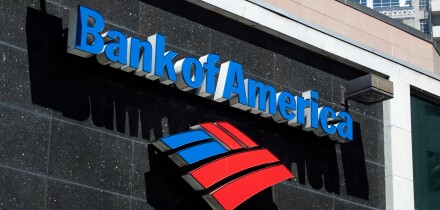Cameron and Tyler Winklevoss, the twins famous for their legal battle with Mark Zuckerberg over the creation of Facebook, published a blog post on Tuesday calling for a new Virtual Commodity Association made up of exchanges and custodians. The Winklevoss twins are president and CEO of Gemini, respectively.
“We believe a thoughtful SRO [self-regulatory organisation] framework that provides a virtual commodity regulatory program for the virtual commodity industry is the next logical step in the maturation of this market,” they said in the blog post.
Members of the VCA would have to demonstrate every year that they had complied with “sound practices” such as co-operating with regulators, stopping market manipulation and making sure cybersecurity was up to scratch. Cryptocurrency exchanges around the world are notoriously unregulated, with many not subject to conventional rules expected of exchanges where more traditional assets are traded.
Crucially, the VCA would make members agree to send information to “regulated exchanges and trading platforms that list products based on virtual currencies”. This would presumably include Chicago Mercantile Exchange and Chicago Board Options Exchange, who controversially listed bitcoin futures in December.
Brian Quintenz, a Republican commissioner of the Commodity Futures Trading Commission, congratulated the Winklevoss twins on their “thoughtful approach”.
“Ultimately, a virtual commodity SRO that has the most independence from its membership, the most diversity of views, and the strongest ability to discover, reveal, and punish wrongdoing will add the most integrity to these markets,” he said. “I encourage Gemini (or any other market participant, advocacy group, platform, or firm) to be aggressive in promoting these qualities within any SRO construct.”
The new ISDA?
At the DC Blockchain Summit in Washington last week, Quintenz threw his weight behind a cryptocurrency SRO as a way to “bridge the gap between the status quo and future government regulation”.
While the chairman of the CFTC, Christopher Giancarlo, has called for a rigorous Federal framework for regulating cryptocurrencies, sources have indicated that new legislation in the US is likely to be a long way away.
Vladimir Maly, partner at Morrison Foerster in London, said on Wednesday that he thought the proposed organisation was the “way to go”, arguing it could champion the cryptocurrency market in a similar way to the International Swaps and Derivatives Association.
“By helping to foster dialogue, ISDA helped develop the derivatives markets further, even after 2008 in very difficult conditions,” he said. “An SRO with stature comparable to ISDA would really give the market a global status and make it a partner to have discussions with.
“The CFTC, SEC, European Commission, ESMA and other regulatory bodies would all welcome having someone to talk to who would be representing the industry.”
But Maly cautioned that it would be “very difficult” to put the body together, noting that the cryptocurrency market was “very scattered, with a variety of players with different business and aims”.
Time to flourish
Last week, the CFTC had its mandate to regulate cryptocurrencies as “commodities” affirmed in a court case, while the SEC said it would regulate exchanges trading cryptocurrencies identified as securities.
However, while the CFTC seems able to go after fraud and market manipulation in cryptocurrency spot markets, it does not have proper regulatory oversight over exchanges. Meanwhile, the SEC has jurisdiction over exchanges only insofar as they trade tokens, cryptocurrencies created to help raise capital for projects.
These tokens can entitle holders to revenue streams from projects, which means they qualify as securities under the SEC rules.
This situation means that neither the SEC nor the CFTC has real oversight over exchanges not committing fraud or market manipulation and trading conventional cryptocurrencies such as bitcoin. This can be a problem for futures that are marked using pricing data from these exchanges.
Responding to GlobalCapital questions over the weekend, Joseph Weinberg, special adviser for the OECD and chairman of blockchain protocol Shyft, said he had observed cryptocurrency marketplaces “already dropping support for security tokens or tokens that look a lot like securities”.
This could mean that exchanges that refuse to trade “security-like” tokens will not all fall under SEC jurisdiction. Weinberg added that he thought the CFTC was right to encourage a self-regulatory approach for cryptocurrencies.
“This is an example of a policy framework that enables enough openness and time to allow this new technology class to flourish and fix some of the fundamental inefficiencies and frictions in our established economic and political functions,” he said.
The news follows controversy surrounding the introduction of bitcoin futures by CBOE and CME last December.
The Futures Industry Association complained last year about the hastiness of the approval process for the bitcoin futures. It wrote to CFTC chairman Giancarlo, calling for a more thoughtful review process.
The chairman later announced new measures that toughened the oversight of bitcoin futures, while also making sure trading firms and futures commission merchants were properly consulted about future cryptocurrency derivatives.
The Winklevoss twins will be interviewed by the president of FIA Tech, Nick Solinger, at the industry body’s conference in Florida on Thursday.







